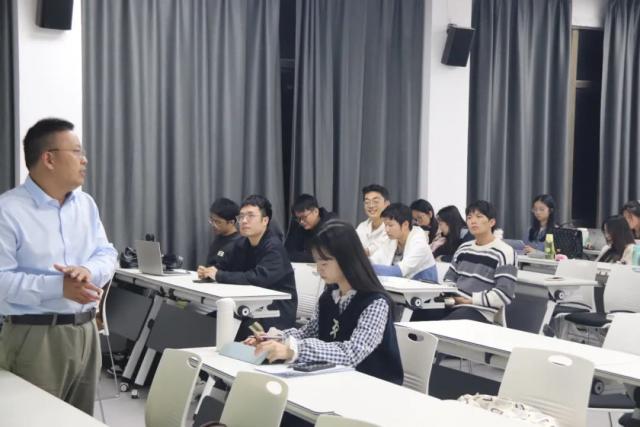On the evening of October 23, 2024, our college conducted the first literature sharing session of the 2024-2025 academic year in Room Y305 of the Graduate Building. Professor Wang Shoukun was invited to participate in this event. The session was chaired by student Rao Simin, and all first-year graduate students majoring in Industrial Economics from our college attended. During the session, there was active interaction between teachers and students, creating a rich academic atmosphere from which the students greatly benefited.
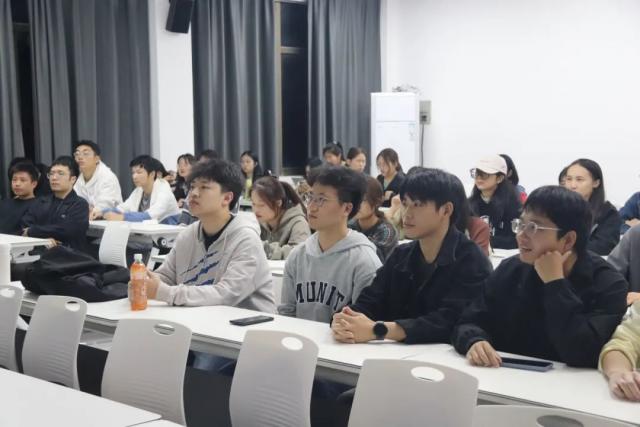
The first presenter at the literature sharing session was Hao Chen, who shared a paper from the "Economic Research" journal, Issue 1, 2023, titled "Digital Economy and Pollution Control in Border Regions." The article utilized panel data from border prefecture-level cities between 2013 and 2019, measuring the differences in urban border attributes by the proportion of border township area, and examined the governance effects of the digital economy on pollution in border areas and its mechanisms of action. The study suggests that the government should place greater emphasis on the role of the digital economy in border pollution control, strengthen the synergy between government and market as well as inter-regional economic connections, reduce the driving force of border pollution, and achieve green high-quality development in border areas.
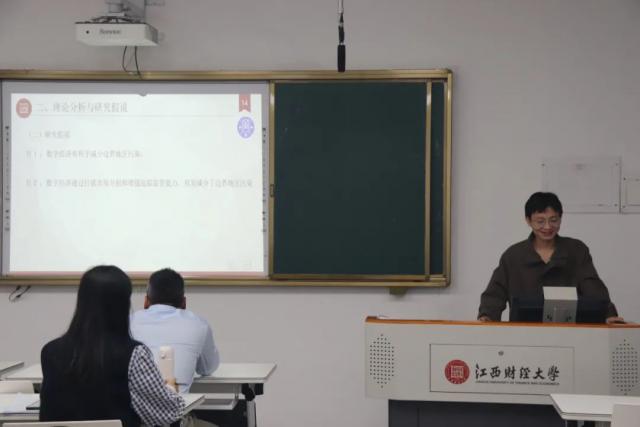
The second presenter at the literature sharing session was Yi Chen, who shared a paper from the "Management World" journal, Issue 12, 2022, titled "Enterprise Digital Transformation, Human Capital Structure Adjustment, and Labor Income Share." The article used data from A-share listed companies between 2011 and 2019 as a sample, employing text analysis to characterize the level of enterprise digitalization, and empirically examined the impact of enterprise digital transformation on the labor income share and its mechanisms. The study indicates that enterprise digital transformation not only enhances the labor income share through technological upgrades and adjustments in the structure of human capital but also promotes high-quality development of enterprises by improving production efficiency. These findings provide important insights for understanding the social effects of digital transformation, and for promoting economic transformation and high-quality development.
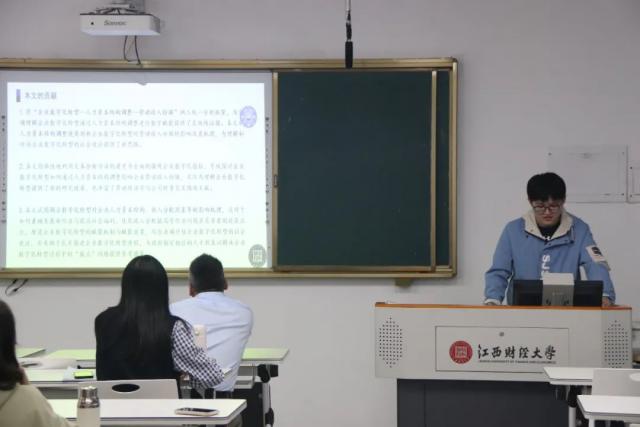
The third presenter at the literature sharing session was Chen Zhenyu, who shared a paper from the "Financial Research" journal, Issue 6, 2024, titled "Local Government Fiscal Pressure and Corporate Default Risk." The article, using data from Chinese A-share listed companies in Shanghai and Shenzhen from 2003 to 2020 as the research sample, systematically explored the impact, mechanisms, and differences of local government fiscal pressure on corporate default risk. It also enriched the study of factors influencing corporate default risk from the perspective of local governments, which are considered the "upstream" entities. The study indicates that the fiscal condition of local governments has a significant impact on corporate default risk, and this impact varies among different types of enterprises and regions. The findings provide a reference for understanding the formation, differences, transmission, and prevention of micro-level corporate risks.
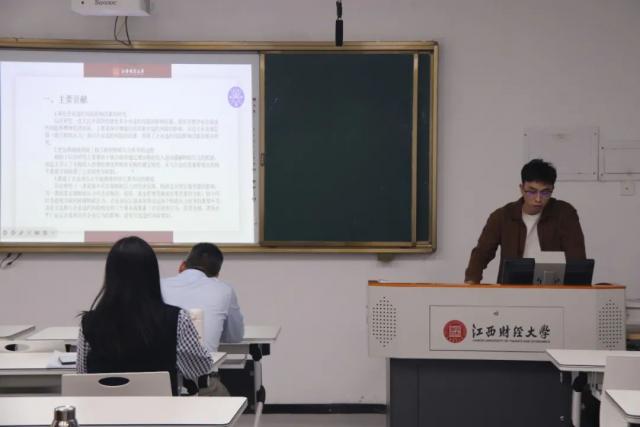
At this literature sharing session, all three students were well-prepared and demonstrated a proactive attitude. Professor Wang Shoukun, as the facilitator, skillfully employed questioning, discussion, and exchange to collaboratively explore the depth and breadth of the literature with the students. Throughout each student's presentation, Professor Wang Shoukun paid close attention and listened attentively. He raised a series of thought-provoking questions in response to the content of the articles, guiding the students to deeply consider the core viewpoints, research methodologies, and potential limitations within the literature. These questions not only stimulated the students' intellectual vitality but also helped them to gain a more comprehensive understanding of the essence of the literature.

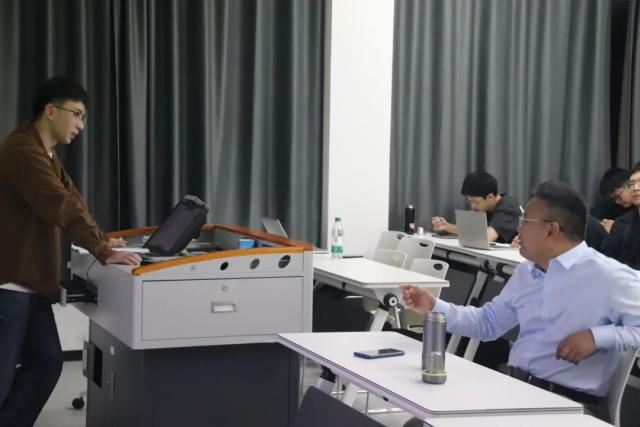
At the conclusion of the sharing session, Professor Wang Shoukun emphasized that a thorough comprehension of the literature is fundamental, and it is imperative to engage in meticulous and extensive reading to ensure a true grasp of the essence. Furthermore, in light of the continuous advancements in artificial intelligence technology, Professor Wang Shoukun encouraged everyone to seize this opportunity to actively engage in academic research endeavors, striving to make meaningful contributions.
